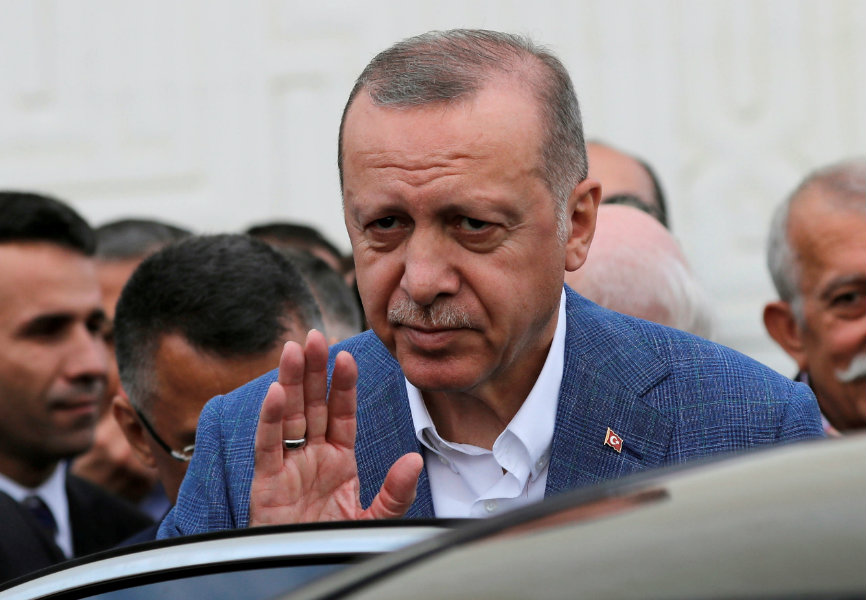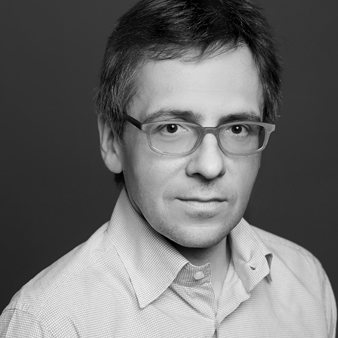In March, Turkish opposition candidate
Ekrem Imamoglu defeated Binali Yildirim, the candidate of
President Recep Tayyip Erdogan's Justice and Development Party, by about 13,000 votes to claim victory in the race to become Istanbul's mayor. The exceptionally narrow margin in a city of 15 million people
gave Erdogan cover to demand an election rerun. On June 23, Istanbul voted again, and Imamoglu won again—this time by about 800,000 votes. It was a stunning rebuke for Erdogan, himself once Istanbul's mayor, and a clear signal that many in Turkey's largest city are fed up with the man who has dominated the country since 2003.
In the process, voters have proved once again that while
Erdogan may continue to reach for Putin-like powers, Turkey is not Russia. It's a legitimate multiparty democracy with genuinely contested elections. After triggering the second vote, the president campaigned vigorously for his party's candidate and used his government's tight grip on Turkey's media to ensure favorable coverage. Despite that advantage, his demand for a do-over transformed a loss by 0.16% of the vote into a 9-percentage-point blowout.
Given that margin, Erdogan had little choice except to publicly acknowledge the result, but he's unlikely to truly accept such a stinging political defeat. Over many years in power, he has demonstrated an instinct for responding to political setbacks
with a more emphatic power grab. In this case, he's likely to use the courts to strip powers from Istanbul's mayor's office and shift them to the central government. With a weak economy and contentious relations with the US, Erdogan is likely to double down on his confrontational nationalist agenda.
His greatest vulnerability comes from Turkey's feeble economy. During his first years in power, Erdogan earned credit for good economic times. Emboldened by this success, his party promised in 2012 that Turkey's per capita income would climb to $25,000 by 2023. The IMF estimates that 2018 per capita income stood at about $8,700. Turkey's gap between rich and poor is one of the widest in the world.
Erdogan will face two major potential challenges in coming months. First, an emboldened opposition and an assertive president may bring large numbers of protesters into the streets of Istanbul and other Turkish cities, particularly if Erdogan is seen as interfering with the city's government. In 2013, a demonstration that began with a few people protesting urban overdevelopment led to an Erdogan-ordered crackdown that resulted in injuries and deaths. Those Gezi Park protests became a national phenomenon, involving as many as 2.5 million people across 79 of the country's 81 provinces. Six years later, the conditions for a repeat of large-scale unrest—urban residents infuriated with an aggressive leader—remain.
Erdogan's more immediate worry comes from political challenges within his own party. The election embarrassment in Istanbul will encourage former Prime Minister Ahmet Davutoglu and former Deputy Prime Minister Ali Babacan to establish new political parties of their own, giving disillusioned supporters new options. Thanks in part to support from former President Abdullah Gul, Babacan is the candidate most likely to draw votes away from Erdogan.
Recep Tayyip Erdogan has proved himself over 16 years in power to be one of the world's most resilient and resourceful politicians, but now he is about to be truly tested—and Turkey with him.
This article appears in the July 8, 2019 issue of TIME.

 Turkish President Recep Tayyip Erdogan in Istanbul. REUTERS.
Turkish President Recep Tayyip Erdogan in Istanbul. REUTERS.
